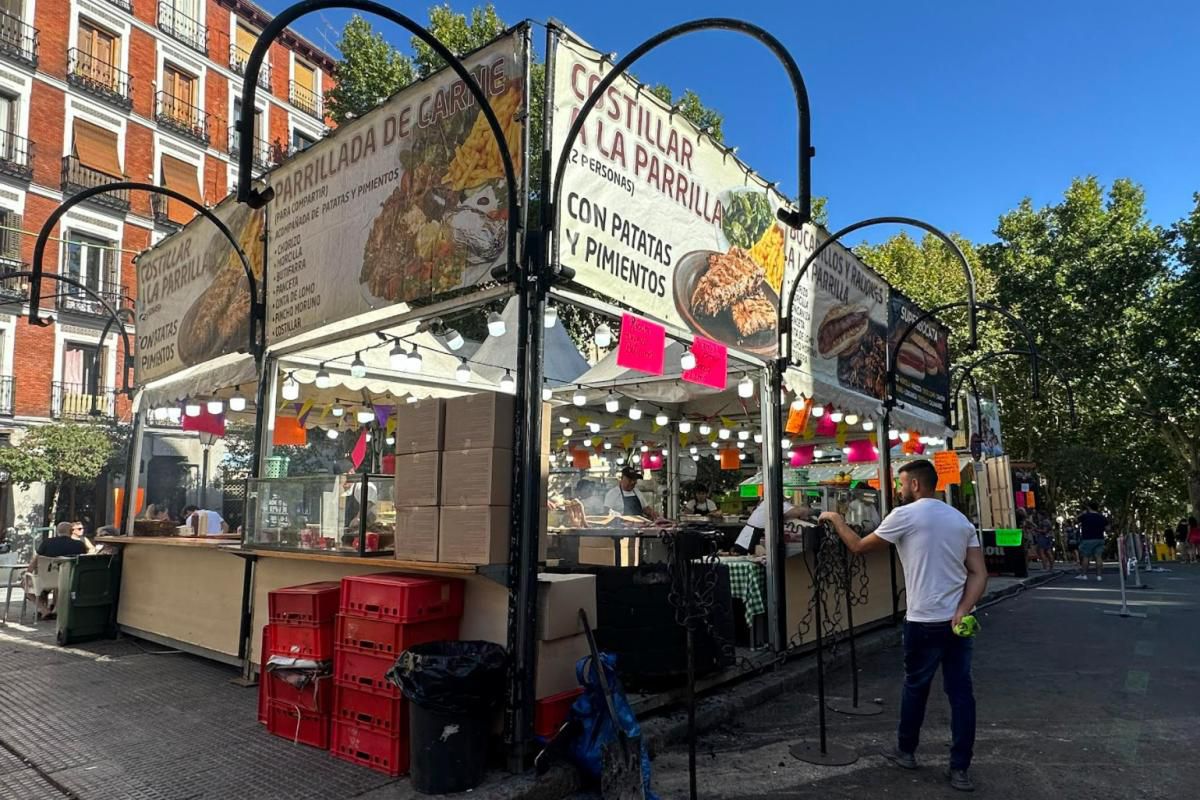Between squid and bacon sandwiches, lamb tripe tapas, beer and sangria, hundreds of Latin Americans move deftly, unfamiliar with many of these dishes until they came to Spainwhere they seek a better life and take advantage of the job opportunities of the popular summer parties of Madrid.
The Bolivian Teresa Sánchez arrived in the Spanish capital two decades ago and tells that in the summer festival of San Cayetano, which is held every year in the old neighborhood of Lavapiés -one of the most popular in the center of the city-, always the “received with open arms with an opportunity” to work.
In the food and drink stall where Teresa works, they serve hundreds of portions of typical Madrid food during the first week of August, when tourists and some residents who have not yet gone on vacation spend the nights on the streets taking advantage of the drop in the temperatures and the festive atmosphere of the center.
“I found out about this job many years ago. The fairgrounds take you (…) from there the word spreads for all migrants, wherever they are from, and they come to work here ”, says the cook and waitress.
A “hard” job
In her years of working in popular festivals, Teresa observes that some of her colleagues -also of Latin American origin- leave and others stay.
“There are people that I see again, there are quite a few that are old, but I have seen several new ones and new ones”mentions the Bolivian cook, who explains that this is because there are people “They are getting settled and they no longer need this job, because it is very hard.”
Fran, Daniela, Carolina and Enrique are a group of young people of Venezuelan, Ecuadorian and Colombian origin who are employed at parties and know that their journey begins “from 3:00 p.m. to 3:00 a.m. the following day.”
“I come here because there is always work (…) sometimes when you don’t have papers, some fairgrounds give you work (…) but it is increasingly difficult, you have to have your papers, yes or yes”says one of them.
You “learn as you go”
Teresa tells that she learned to cook Spanish dishes “on the progress”, mainly in this type of popular festivities and as a housekeeper. At Lavapies parties, she helps prepare the chorizo, bacon and loin sandwiches, the “Best sellers”.
In her case, the Venezuelan Génesis -who arrived in Spain four years ago- highlights thate “It is the Spanish compañeros who teach the Latinos to make the cymbals”.
“It’s easy if you put enthusiasm into it”, assures, while specifying that preparing traditional Spanish meals is a process “different”given that “Venezuelan and Spanish food are not alike at all.”
It is also something new for Carolina, a Colombian, who works for the first time in these festivals and, despite the long hours, especially on weekends, she wanted to do it.
“Since I was little I have always seen my relatives working here and I wanted to too, and when they could, they got it for me”relates this worker, who has learned the recipes of the different traditional drinks of Spain (“very different from the Colombian ones”he says), so this work is giving himor “the opportunity to learn things that I did not know”.
Source: EFE
Source: Gestion
Ricardo is a renowned author and journalist, known for his exceptional writing on top-news stories. He currently works as a writer at the 247 News Agency, where he is known for his ability to deliver breaking news and insightful analysis on the most pressing issues of the day.











